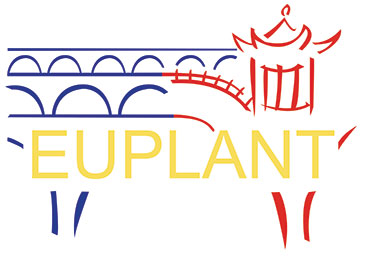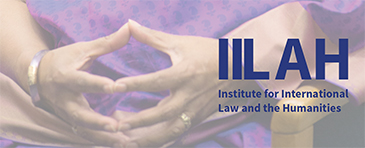Friends of CLSGC
History of International Thought Network
An academic network providing a forum for research into the history of international thought, international law, and international relations.
International Network on Transnational Legal and Political Theory
The International Network on Transnational Legal and Political Theory (‘the Network’), was co-founded by Maks Del Mar, Nicole Roughan, Massimo Renzo and Bas van der Vossen in 2013. The aim of the Network is to encourage and facilitate international discussion and collaboration amongst researchers working in transnational legal and political theory.
The Network plans to host meetings every two years, each time in a different continent.
The inaugural meeting of the Network was held Queen Mary University of London on the 7 November 2013. The 2nd meeting was held at the National University of Singapore on 7 February 2015. The 3rd meeting formed a special workshop at the IVR in Washington, DC, July 2016, and the 4th meeting hosted by the University of Cartagena from 24-27 August 2016. A 5th meeting took place on 1 December 2016 at the University of Edinburgh.
A 6th meeting will take place from 7-8 May 2017 at Bar-Ilan University, Tel Aviv.
The Network’s co-convenors are Maks Del Mar and Nicole Roughan. If you are interested in joining the Network, or in hosting a meeting, please email either m.delmar@qmul.ac.uk or nicole.roughan@nus.edu.sg.
Find out more about the Network.
Erasmus School of Law in Rotterdam
The CLSGC holds annual dialogues with Erasmus School of Law. The latest of these was in London in November 2017, in part on the theme of ‘Tradition’.
 EU-China Legal and Judicial Cooperation (EUPLANT)
EU-China Legal and Judicial Cooperation (EUPLANT)
The Jean Monnet Network ‘EU-China Legal and Judicial Cooperation’ (EUPLANT) investigates the interactions between the Chinese and the European Union (EU) legal and judicial systems and promotes excellence in teaching and research on EU-China legal and judicial cooperation. Through a set of research, policy and outreach activities, EUPLANT creates new avenues for enhanced academic and policy cooperation between the EU and China and engenders a better understanding of each other’s legal systems. EUPLANT is Generously supported by the Life Long Learning Programme.
Institute for the Humanities and the Social Sciences
The Institute is an ideas generating hub for the Faculty of Humanities and Social Sciences at Queen Mary University of London. It seeks to enable inter-disciplinary and cross-disciplinary conversations, by bringing together the expertise of some of the world’s finest scholars from within Queen Mary University of London and from outside.
 Institute for International Law and the Humanities
Institute for International Law and the Humanities
Based at Melbourne Law School, IILAH focuses on encouraging the work of younger scholars and those developing new approaches to the field of international law, and facilitates engagement between scholars and the community of professionals and activists working on issues of international law and governance. It has developed networks with scholars in international law and the humanities from Canada, Colombia, Egypt, Finland, France, India, New Zealand, South Africa, Sweden, the United Kingdom and the United States. IILAH is currently focusing on developing links with scholars in the global South, in order to explore the shared legal legacies of colonialism.
iCourts 
iCourts, the Danish National Research Foundation's Centre of Excellence for International Courts, is a research centre dedicated to the study of international courts, their role in a globalising legal order and their impact on politics and society. iCourts opened in March 2012 as a centre of excellence funded by a large grant from the Danish National Research Foundation.
Art and International Justice Initiative 
The Initiative is a hub connecting academics, legal practitioners, students and others wishing to explore the potential of art as a tool to promote or increase understanding of international justice.
The purpose of the Initiative is to engage various forms of art to uncover its potential:
- to promote better understanding of the legal provisions that have universal application;
- to design a more effective reparations system addressing systemic human rights violations;
- to link aspirational purposes of international justice, such as reconciliation, with the actual outcomes;
- to build bridges between law and emotions using the medium of art; and
- to serve as an educational tool in disseminating the values of international law.


